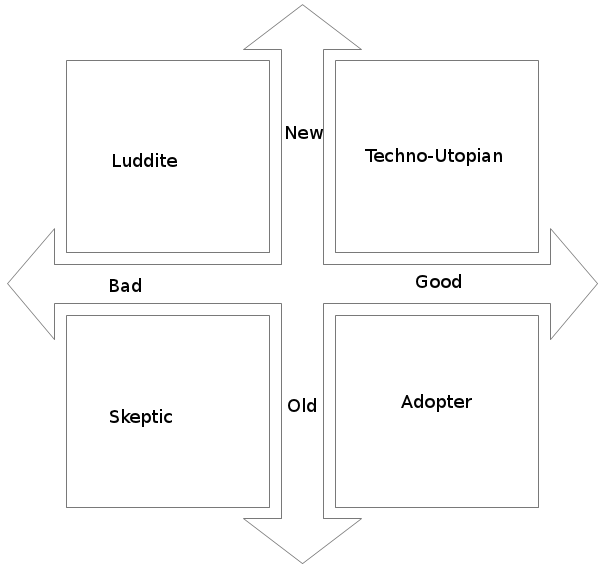Whether one accepts straightforwardly deterministic speculation or not, whether one prefers to think the mind and the collective mind as functions of or factors in computing, we are bound by mediating forces. As the paragons of privileged speculation, Marshall McLuhan and Lev Manovich stand unchallenged as the sources for media and software theory in the United States. Their conceptual frameworks are most contentious when held against certain French thinkers’. McLuhan’s insight that all media contain as a message a prior medium finds a counterpoint in Regis deBray’s analysis of media as overlapping paradigms, rather than linear progressions. Manovich’s later contributions to software theory as a field in its own right takes as a direct target the archaeology of media as expounded by Michel Foucault, whose concentration on print and writing as valid archival data severely limits his historiographic impulses. But taking these two Anglo writers’ work on their own, we can unpack just where they stand, as well as their utility and inspiration for contemporary thought. Continue reading
Tag Archives: comparison


Internet – Lit Reviews – Kittler, Lanier, Jenkins
Internet – Synthesis – On Newness
The question of what, after all, is so new about the internet has run through the introductory and summary posts in this series. It is a divisive question. Some proclaim the revolutionary, worldchanging emergence of the internet a wholly unique phenomenon. Others describe its continuity with older forms of media, communication, technology, or ideas. And each vein has its proponents and detractors of the internet’s cultural effects, which seem ubiquitously manifest, though not unequivocally ethically or morally valenced. Since we are concerned, here, with not just cultural effects but also cultural conditions for today’s internet, though, we cannot neatly reduce our approach to any of these positions.
So, we are faced with a series of comparisons and contrasts.
Internet – Geography, and Africa Introduced
We expect no clean equivalence between infrastructure, labor, capital, and internet development. Still, we know that the growth of a robust modern internet takes vast amounts of time, skilled labor, and knowledge — all elements of advanced capital. So, when we consider the rise of today’s African internet, we must ask, first, who builds it — and then, where its infrastructure overlaps or clashes with existing geographical patterns. Heavily visual organization and logic help think through these issues of backbone, traffic, and investment. Their combination leads to some interesting insight to the specific challenges facing the continuation of Africa’s internet-building. Continue reading
